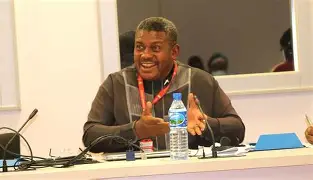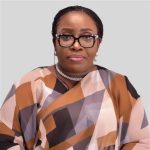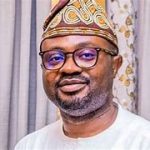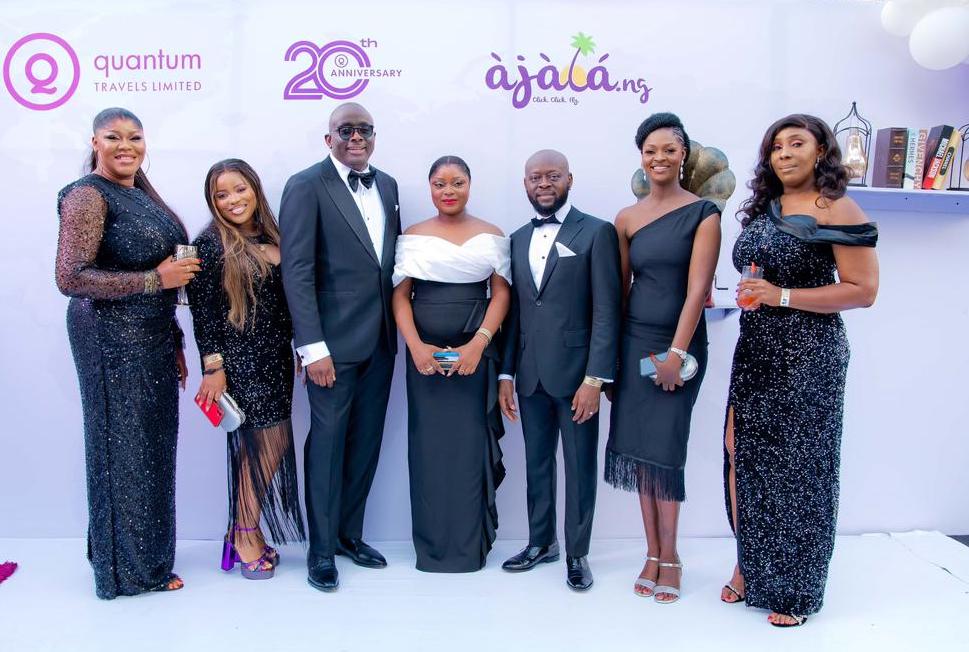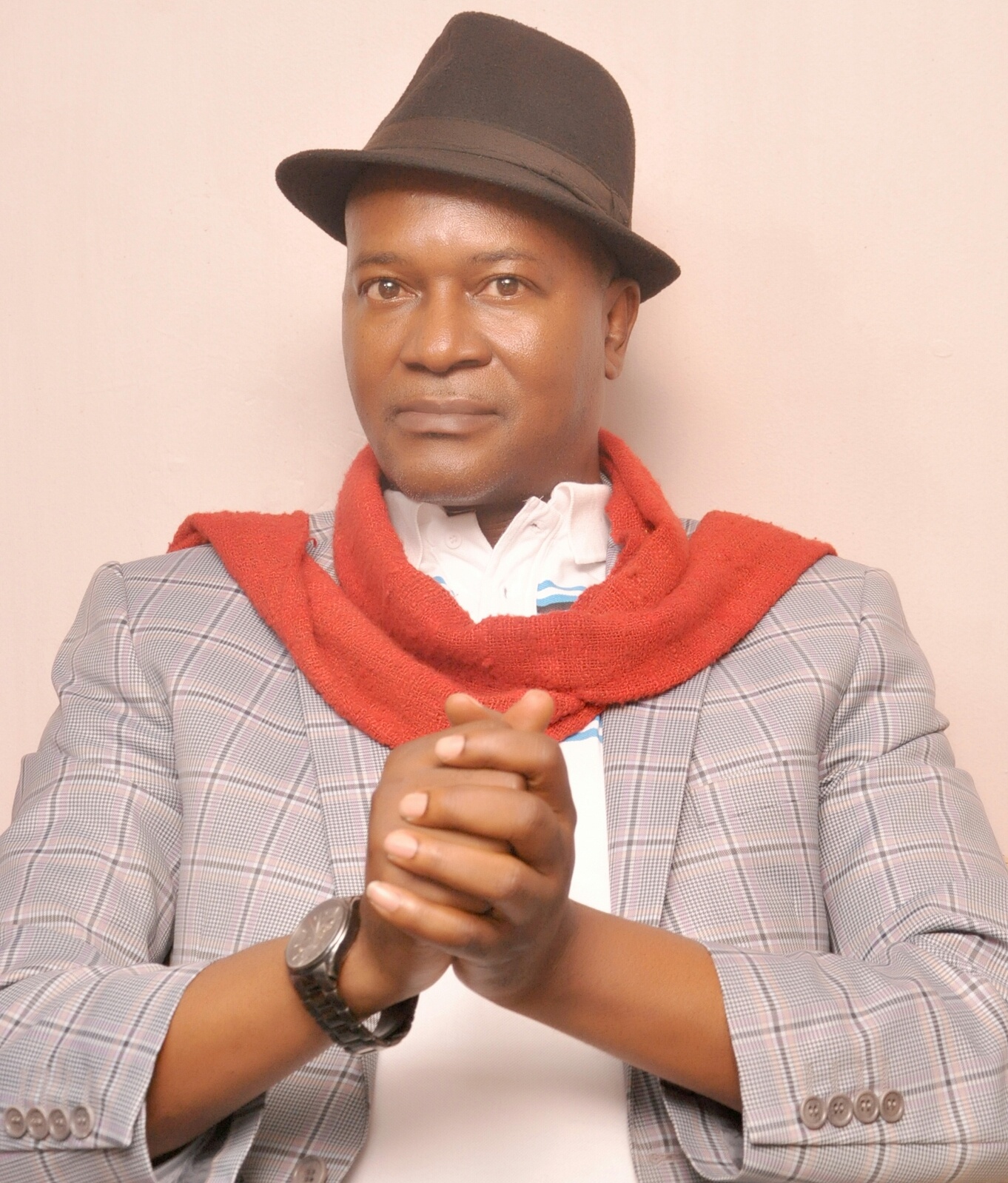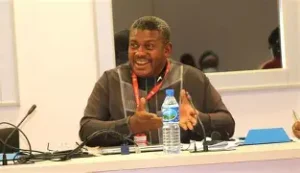
Director of Private Sector at the ECOWAS Commission in charge of tourism, investment and business development, Dr. Tony Luka Elumelu, speaks on the commission’s participation at the Accra Weizo, a tourism expo put together by organisers of Akwaaba, the factors militating against tourism in West Africa, among others. Charles Ajunwa brings excerpts
What’s your assessment of tourism in Africa?
You see, movement is a way of life for every black person especially of African extraction. So tourism is beyond mobility, and is protecting our heritage. We have a culture, we have values that even though they’re eroding, but we need to protect them. But they also have linkages because of affinity with one another, and sharing of contiguous borders. They share the same culture and ethnic values.
But one of the problems that is impeding tourism in our West African region is the fear of security issues. And I don’t think it should come up to that. All we need to do is to leave security issues for the security agencies to take care of. We should encourage mobility, exchange and cultural values because these are the things that were pillars in terms of our integration. Even beyond our integration, in terms of integrity, there’re values and standards that are expected of a family. And if you don’t behave that way, you are ostracised.
So tourism is something that should flow within Africa for other regions to know that we have this set. And if we have all sites, hotels, if we protect them with the kind of passion that we ought to do, we find that that will make Africa a destination continent. That’s what I feel.
How has the ECOWAS Commission contributed to the growth and development of the tourism sector in the region?
The ECOWAS Commission led the process in terms of developing what they call ECOWAS Tourism Policy. Because you must have legal instruments to guide whatever regime that you need to put in place. It’s not the ECOWAS Commission that will develop, but member states. Member states have adopted what they call ECOTOP. That’s ECOWAS Tourism Policy. Within that one, there’s a broad spectrum of intervention in terms of our tourism development. Beyond that, in terms of our hotels, again, because when you talk about tourism, the first thing that comes to your mind is hotels. No classification has been adopted, which means that if you say this is a four-star hotel, for example, Accra City Hotel. If you go to Nigeria, it must be an equivalent. So it’s a harmonised process. Identify hotels, ecologies, bed and breakfast, harmonise all the processes. We’ve trained the operators. We’ve trained critical stakeholders in tourism management. To make sure that the implementation is in tandem with the relevant legal instruments. That’s exactly what ECOWAS is doing.
Beyond that, we are working with the operators when it comes to immigration, Customs, and police to ensure that we facilitate mobility of tourists. Also, we are developing what they call EcoVisa. EcoVisa has been adopted, but we are trying to make sure that we look at the mechanism because the concept of interoperability in terms of visa issues is not something that you just start doing. Works are the highest level for us to harmonise processes, and to make sure that when you come with one particular visa as a tourist, you’re able to pass through the countries within the ECOWAS region. So this is what we are doing for now. We’ve harmonised the passport regime. I’m sure you came to Accra, Ghana, with ECOWAS passports.We’ve adopted what they call biometric ID cards to demystify passports, so that when you are crossing the border with an ID card, you still feel that you are walking across from one street to another. Because even if you are in the country, you need an ID to cross. (5:30) So these are demystifying travels. We are making sure that at the end, you have a seamless travel.One of the things, again, in terms of capacity building we’ve done, I was at the Gambia three months ago, we were able to ask them that they should stop using the word like off-season, to look inward to ensure regional attraction in terms of tourism, so that it will be all-season instead of off-season. These are the things that we are trying to do, but quite a lot more we are doing. Because, you know, when you talk about investment, investment always comes from tourism. If you look down on tourism, you lose investment. When you’re talking about investing in your country, people will come in as tourists. And if they look at the investment climate as tourists, they will develop your country. So tourism is a critical element in terms of our integration and development agenda.
In what way is the ECOWAS Commission empowering tour operators?
Tourism is a broad sector with a different spectrum of intervention. Whether it’s SMEs, business, whatever. We’ve built capacities, supported them and provided the relevant finance and grants for the SMEs. We’ve institutionalised what they call a coalition of SMEs in the region. We’ve also done what they call ECOWAS Business humanisation. We’ve supported them in terms of funding, in terms of market access, because that’s what they need. Exchanges across the region. (7:32) So you can see that it’s quite a lot of support that we’ve been giving them. We’ve also institutionalised what they call the Investment Promotion Agencies in West Africa. So there’s quite a lot going on in ECOWAS.
We don’t sing our songs. But the most important thing is that we’ve adopted what they call the MSME Charter. The MSME charter is so broad in terms of areas of intervention by member states. Businesses that are wholly owned by women, that should be supported by the government, from even the taxes collected. The problem we have is implementation.I just want to give you one simple example. but it might not be on record. If you look at the charter, our problem is the implementation of text. When it comes to free movement of persons, it was adopted many years ago? It’s almost as old as the flagship protocol 1979. And it started off very well. I was even a young officer in the Nigerian Immigration Service in the early 90s and the late 80s. And I tell you, it was easy for people to cross the borders.
You see, it is not the provisions or the legal instrument but the implementation that is just the problem. Once you have your passport, you ought to cross the border without any impediment because there are provisions there. You cross the border, bring yourself to the immigration officer at the border. After that point, you cross the border and nobody stops you. The provisions are still there. They haven’t changed. But the attitude of the operatives is just the problem. And beyond that, you have foreign elements who have taken advantage of the protocol. The Boy Scouts are there on the road. The community people are there on the road. All of them work as immigration or police officers. But it depends on the political will of the members to do the job and clear the road.
Is the ECOWAS Commission in partnership foreign organisations like the European Union (EU)to stimulate growth in tourism in West Africa?Yes. We have support from the European Union in terms of the ECOWAS projects. And you see, the member states have benefitted from this. They work either directly with the member states or through us at the commission. But this, I tell you, also depends on the ability of the member states to enforce what they have signed. (10:49) Enforcement is key. If you develop the best protocols and you don’t enforce them, you will still have problems. So, it’s the enforcement that is a problem.
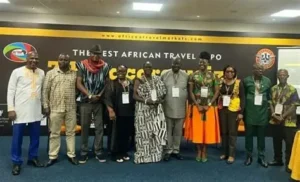
In terms of growth, where do you see tourism in West Africa in the next 10 years?
We’re projecting that with awareness now because you see, there’s a paradigm shift in terms of perception of tourism.
You mean Artificial Intelligence?
Exactly. Beyond AI, people are aware now. You are here. You go back and tell them that, oh Ghana, these are the things that you should go and see live. So, there are a lot of things that you should copy. And when they come to Nigeria, there are positive things. Tourism is a new order. And every man, every woman is a tourist. Your ability to be able to make the best out of it. There’s awareness, holiday. I’m sure because of positive funds now. People want to buy tickets to go to European countries or America. If you pick the funds that you need to buy your ticket, you can spend it in the neighbouring country Amand still get the same benefit that you are looking for.
So, I think if we enhance our security architecture, one of the things that determines the inflow of foreign tourists. I feel that we should play down on security because security issues are being handled by the appropriate agencies. For example, let’s project our tourism sector. In Nigeria, we have, for example, we have quite a lot of places that people can visit. You have, in the North, in the South, in the West, in the East, good tourism sites that are there. Is it in the East, talk about Ogbunike Cave. In the West, Oshun River. You go to the North, the Yankari Games Reserve. Everywhere we have all those sites but we also need to develop them. Make sure that you put in the appropriate infrastructure because without infrastructure, you have a very big problem. That’s one of the things that you need to do. Our road networks, and also your power. They are also very important in tourism. In Guinea, you have Futa Jelon. In Cote d’Ivoire, you have the Basilica. You have every good thing in our region. Then you go to the seaside, you have The Gambia.
All these things are there. But our problem is that we need to do a lot of sensitisation. And you can’t do that without the media because most of the time, we plan, and in our strategies, we don’t put the media. So you’re bound to fail. Because if you light a candle and put it under your bed, there are two things. It will give you the light, but it will also burn the house. So that’s the problem.
This is your first participation in the Accra Weizo, what’s your take away from this travel expo?
First, I’m quite impressed because of the turnout. It is not the number, but the representation from member states. Two, you see history. The presentation by Ambassador Ikechi Uko, who is a Nigerian.He’s coming here (Ghana) to bring in this drama. I call it drama because it shows that Accra Weizo for ECOWAS has been accepted in terms of integration. So our integration agenda is working. The ECOWAS Commission is very happy, and we support such initiatives to make sure that people feel at home across the country when they decide to be domiciled. That is taking advantage of the protocol of human affairs and the right of entry and residence.


